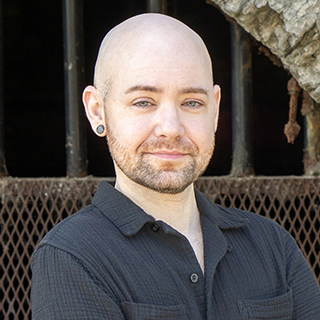Meaning is at the heart of existential therapy: being born into the world without predetermined meaning, and creating (or failing to create) personal meaning as we go through life.
A maxim of existential philosophy is “existence precedes essence,” from Jean-Paul Sartre, one of the founders of existentialism. We don’t arrive in the world as “essentially” any one thing. We become who and what we are as we go along, and it’s up to us to make sense of that process. We can make meaning of our lives with intention, or we can let others do that for us.
And others will be happy to make meaning for us. Humans are a storytelling species; we seem wired to tell ourselves and each other stories that make sense of reality. Cultural narratives make meaning that way; so do religious beliefs and family lore. Existential meaning-making is a communal and cultural process, but also an individual one. As we grow and develop, we narrate to ourselves what’s happening inside and around us and create a relatively continuous (when things go okay) story of our lives.
Healing suffering with existential meaning
This fact can make existential therapy good for healing interpersonal trauma. Many traumatic events violently replace the meaning you make of your own life with another story entirely—someone else’s story. Trauma recovery involves rejecting that story and building self-narrative: telling your own story.
For instance, on an individual level, a child abused by a caregiver is told they are bad, stubborn, rude, and so deserve the physical abuse they receive. On a cultural level, disabled people are told they are unnatural, mentally ill, or a drain on society, and so deserve to be denied competent healthcare and basic human rights.
In both instances, meaning is inflicted on the individual in direct opposition to their own personal meanings—and in opposition to their basic humanity and freedom. Trauma recovery through meaning-making is about rewriting those stories. I am good, I am giving. I am worthy, I know myself.
As we see, the difference between the meaning inflicted and the meaning chosen can be high stakes. And for many of us, it’s hard to go through the process of changing meaning. Therapy is a container to confront how we have internalized meaning inflicted on us (not just through trauma, but through all the mechanisms of our daily lives). An existential therapist can help you discern where the story you tell yourself comes from and guide you in reclaiming—or claiming for the first time—meaning you choose for yourself.
Meaning-making and purpose
Meaning-making is part of building resilience to suffering. It goes further than that, though. As we engage in writing our stories, we deepen our understanding of ourselves and others. It also supports our well-being by helping us identify and pursue goals that give us more happiness and contentment over the long term.
Closely related to the topic of existential meaning is the idea of purpose. Choosing our own goals, deciding how we spend our time, is part of how we shape our essence. Authentic living makes it more possible to identify and pursue purpose. Knowing our values and desires gives us the opportunity to align our actions with them. The big question here is, What is your life for? Or, as a client once put it, “What am I for?”
We can make meaning and find purpose through all sorts of channels: spirituality, friendship, romantic relationships, creative pursuits, family, community service, career achievements. The source matters less than that we’re actively engaged in the ongoing process of making our lives significant. This helps us ride the waves of suffering with more resilience. What’s more, a sense of existential meaning and purpose goes a long way toward having a satisfying, joyful life.

